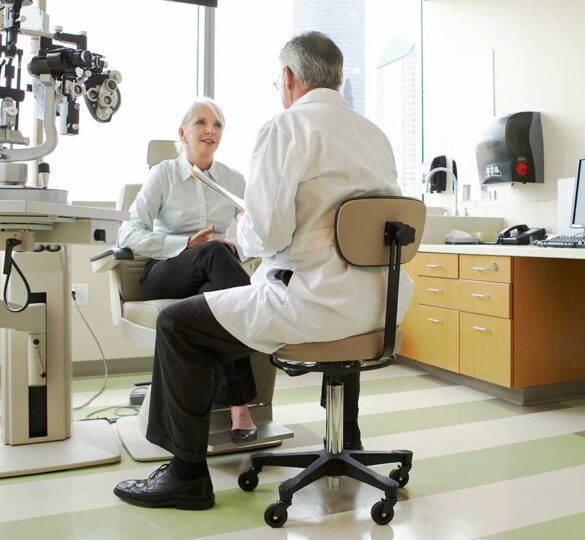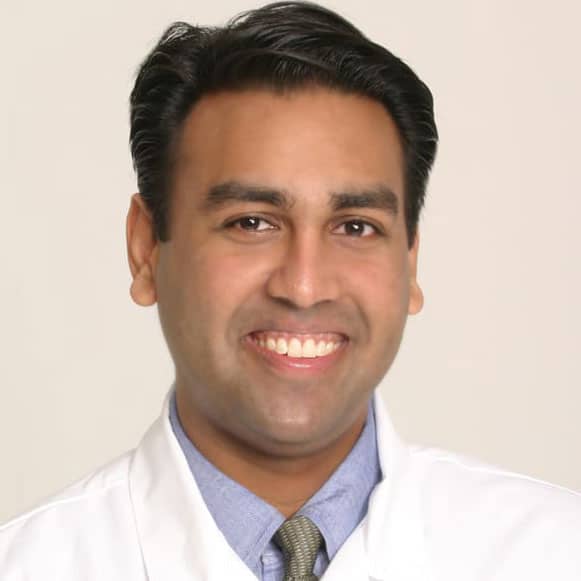Glaucoma FAQ: Answers to Your Questions
Each person's glaucoma is unique. These discussion points may be helpful during your next visit with your eye doctor.

Each person’s glaucoma is unique. The following comments are intended to be a starting point for discussion with your glaucoma physician.
If I miss my scheduled time for taking my drop, what should I do?
Taking your eye drops consistently (compliance) reduces the likelihood of pressure fluctuation (diurnal variation). Inconsistent use of drops will vary the intraocular pressure (IOP) and has been scientifically proven to be detrimental to your glaucoma. Therefore, when you miss a morning dose of your medicine, take it later in the day when you remember. If you forget your evening dose, use it in the morning when you remember. Continue your regular dosing thereafter, even if it seems like you are doubling up within a few hours.
When my eyes feel dry, can I take more of my glaucoma drops?
In many instances, the glaucoma drops themselves have a side effect of causing dry eyes. Increasing their use would not only exacerbate the dryness but also not follow the prescribed dosing interval. Short answer: No.
When my blood pressure goes up, what happens to my eye pressure?
If someone were to raise your blood pressure your eye pressure might go up immediately. Just as quickly your eye would compensate for this and return your eye pressure to its usual level (homeostasis). However, increased blood pressure over a longer period of time could lead to decreased circulation to your eye which would be detrimental to the glaucoma.
What is the ideal eye pressure for me?
Every individual has a unique pressure that is good for their eye. Whereas one person may have a pressure of 29 and be on no drops, another person may have a pressure of 15 and going blind. Each person should ask their physician what their ideal pressure is — a goal which is determined by each person’s unique history, exam, and testing. One size does not fit all when it comes to a pressure target.
Can I take my drop every other day to save on the drops?
When the Food & Drug Administration (FDA) approves medications, there are very specific scientific studies to determine the best times and how often medications should be administered. The labeling on your bottle as directed by your physician should specifically be followed as every other day use may be detrimental to your glaucoma. Short answer: No.
Why don’t you have a coffee machine in your waiting room?
Coffee can raise your eye pressure temporarily by a small amount. A coffee machine in the waiting room would make your IOP reading high just as the doctor is taking the measurement he is trying to lower and keep low.
If my insurance doesn’t cover the drop my eye doctor prescribed, should I not take it?
If you are prescribed a medication that is not a “preferred” medication on your insurance plan and there is a similar medication within that class that is cheaper you may be able to switch. With the information of the substitution in hand, call your glaucoma physician. A classic example would be Xalatan, Travatan Z, and Lumigan. Each insurance plan is unique in that one agent may be cheaper for you even though they are very similar.
If a medicine says ‘don’t take if you have glaucoma’ should I take it?
Common medications have package labeling that urges caution in the face of a diagnosis of glaucoma. Although there are many kinds of glaucoma, in general the warning relates to the configuration of your drain within your eye (angle). If you have a narrow angle (ask your glaucoma physician if you do), you should avoid medication such as cold, cough, and urinary medication (anticholinergics). Read the label carefully of medications you take and discuss this with your physician if you are unsure. Any pain, blurry vision, headache, or nausea accompanied by the use of these medications should be discussed with your physician.
If my vision doesn’t get better when I take my drops, do I still have to take them?
Most glaucoma has no discernable symptoms. There is no pain, no perceived loss of vision, and no redness. When the disease is very advanced, then an individual may notice the loss of vision. One of the most important principles of glaucoma care is the treat the disease before the patient starts to notice the loss of vision. Taking your medication as prescribed to save your vision cannot be overemphasized.
Can my doctor prescribe marijuana to help my pressure?
Although many people have heard of marijuana being prescribed for glaucoma, scientific study has not shown this to be effective. The pressure reduction is small and very short lived. Even isolating the active ingredient has not been proven well enough to result in a commercially viable product in the United States.
Article by Rohit Krishna, MD. Last reviewed on April 19, 2022.

Rohit Krishna, MD
Dr. Rohit Krishna is a clinician, educator and researcher at the Eye Foundation/Vision Research Center of Kansas City and the University of Missouri-Kansas City (UMKC) School of Medicine, where he is Director of the Glaucoma service and Associate Professor of Ophthalmology.